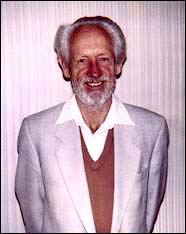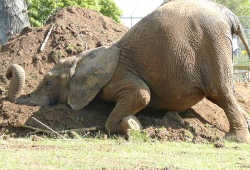Warwick Elley – 2/7/99
Millions of people have heard Alan Duff’s name through his books and films,
especially “Once were Warriors” and now “What becomes of the Broken Hearted?” In these books and films he shows his understanding of the difficult lives of disadvantaged families. Not so many people are aware of
the work he has done to help the children in such families by setting up
the “Books in Homes” Programme.
Alan Duff’s “Books in Homes” Programme – how valuable is it?
Emeritus Professor Warwick Elley evaluates the scheme.
|
|
| Warwick Elley |
If you are interested in the work of Warwick Elley in the field of literacy, read this article. The “Books in Homes” Programme, popularly known as the “Duffy” Programme
was started by Alan Duff in 1992, primarily to provide books for children
in bookless homes. It now operates in over 160 low-income schools and has
donated over 450,000 good quality books to the pupils in these schools.
The scheme is organised by a small staff in Penrose, Auckland, under the
direction of Christine Fernyhough, and its policy is formed by a ten member
trust of prominent Maori and business leaders. The books are provided by
Scholastic Books Ltd. and chosen by the pupils, with guidance from their
teachers and parents. The books are promoted in the schools by prominent
HERO role models, mostly from the sporting and media world. The children
take the books home, to keep and often share them with family and friends.
The Programme is funded by a number of corporate sponsors and other agencies, and more recently by Government grants. Following the decision
to put Government money into the scheme, in 1996, the Research Division of
the Ministry of Education called for a formal evaluation of the Programme.
I submitted a proposal to do this and I was subsequently invited to undertake the evaluation. The project was funded by the Ministry of Education.
The philosophy behind the scheme is that children are more likely to develop the reading habit if they own some good quality books that they can
call their own. Without books around them they are unlikely to see reading
as a very important part of their lives. Children who come from bookless
homes do not become high achievers, according to Duff. He argues that too
many Maori and Pacific Island children come from such a background, and he
determined to do something about it. As he put it in his well-known book,
“Once were Warriors”, such kids “didn’t stand a show in this modern world,
not a damn show”.
The plan which evolved in Camberley School, in Hastings, where the scheme
first started, was that all children in the school would receive a few books every year, that they would be promoted in the school by teachers and
popular role models, and that additional books could be earned by a “Caught
being Good” programme. Children would be given extra books each month for
“being good”, however that was defined in the school.
Three surveys The evaluation focussed on the impact of the Duffy books and the role model
visitors, on the pupils, schools and communities in which it had been instituted. In this article I outline the findings of three formal surveys
designed to assess this impact, and of several other indicators of the effects of the Programme.
The main sources used to gather information were as follows:
1. Questionnaire surveys of all schools These were carried out in September 1996 and September 1997. These surveys
were initiated by the staff of “Books in Homes”, who released all the response sheets for me to study. This analysis showed that the “Books in
Homes” Programme was very popular in the schools. Most children had received the books that they had ordered, and in those cases where they had
not, the children were pleased with the substitutes. A few were disappointed. The Scholastic books were very popular with children, teachers and parents. The role models who visited the schools to distribute books were largely effective in transmitting their message about
the importance of reading, and teachers believed that the impact on their
pupils was very positive.
2. A series of targeted interviews These were conducted with principals, teachers and pupils in a representative sample of twenty schools and confirmed the positive impact
revealed in the questionnaire surveys.
* Principals were confident that the scheme was operating smoothly in their
school, role models were rated as excellent, and all were keen to continue
with the Programme into the second cycle, despite some difficulties in raising funds. I believe that this fact is a significant index of success.
* Teachers were generally happy with the quality of the books, most spent
some time promoting them in class before pupils took them home, most believed that the impact on pupil attitudes and reading habits was positive, and some thought that reading abilities had also improved. The
role models and the Duffy character and theatre groups were all rated very
highly. The “Caught Being Good” Programme was having a wholesome effect on
pupils’ behaviour. Some found difficulty in selecting books unseen, and
recommended that a sample pack of the books on offer be sent to each school
before choices were made. Teachers rated the programme as most successful.
* Pupils could recall the names of 81% of the books they had received.
They had read about half “right through”, and some more than once. Many
other members of the family had also shared the books. Some 70% of them
said that the Duffy books had helped their reading “a lot”; 64% said the
Duffy Programme was ‘Great” or “Cool”, and nearly 90% were able to explain
what the message of the visiting role models was.
3. Two surveys of pupil achievement and attitudes With the help of my research assistant, Michael Satele, I conducted two
surveys of pupil achievement and attitudes in a sample of all the year 5
and 6 pupils in eight new schools, just before, and twelve months after
they joined the Programme. The tests and questionnaires were tailor-made
for the project.
These surveys showed: * a significant improvement in the average reading skills of the pupils
who participated. This increase was found in every school. More specifically, those who were present on both occasions had improved by 35%
more than they would have without the Duffy Programme. It is probable that
this increase would be cumulative over time, as the books become more widely read in the homes.
* a significant improvement was found also in pupil interest in reading,
as indicated by a questionnaire on their reading habits and their activity
preferences.
4. Additional sources of information * Surveys of parents’ attitudes were very positive.
* An additional book order scheme, organised through the schools, showed
large increases in spending by parents.
* The effects of the Programme on the children and community of Camberley
School, where the Programme started in 1992, were very positive and appeared to increase over time. The community appeared to benefit as vandalism and truancy rates dropped dramatically, and parents were much
more cooperative with school authorities. Many parents became involved.
The overwhelming impression gained from all these sources of evidence is
that the “Books in Homes” Programme has been very successful. It has operated as intended in the schools and has improved the attitudes, reading
habits and reading skills of pupils in the participating schools. While
the impact on reading ability is still relatively modest, there are strong
indications that it will increase over time as the flow-on effects can already be seen in the parents and younger siblings of the pupils in the
Programme. The few recommendations for change in the operation of the scheme have mostly been implemented and virtually all schools are keen to
see the Programme extended. When I asked teachers whether it might make
more sense to spend the money on books for the school library, every one of
the said no, usually with emotion. “Book ownership for these children is
critical.”
The Alan Duff Charitable Foundation, the corporates and other sponsors, the
school visitors, the teachers and the office staff working under the direction of Trustee Christine Fernyhough have taken Alan Duff’s concept of
donating books to book-deprived homes and translated it into a practicable
and effective policy for raising literacy levels in low income schools.





